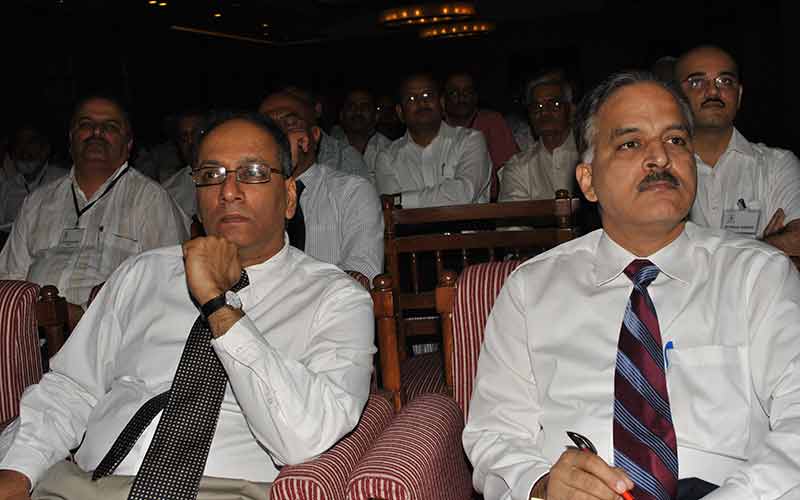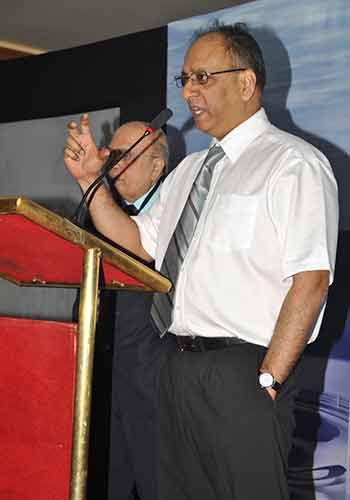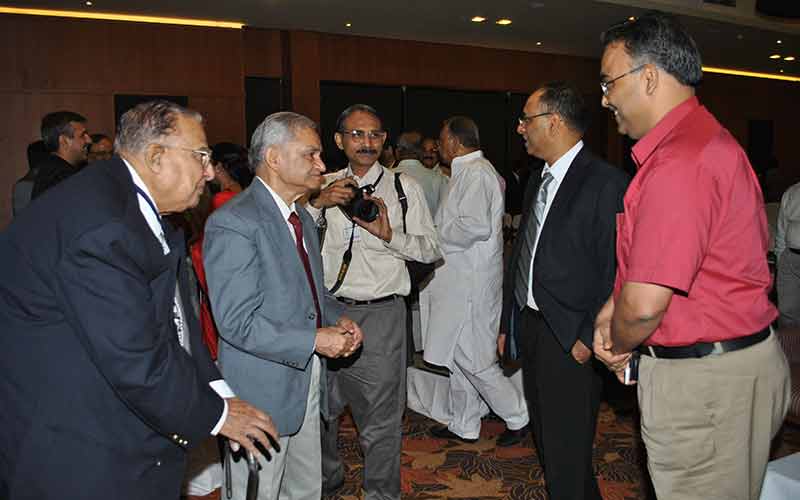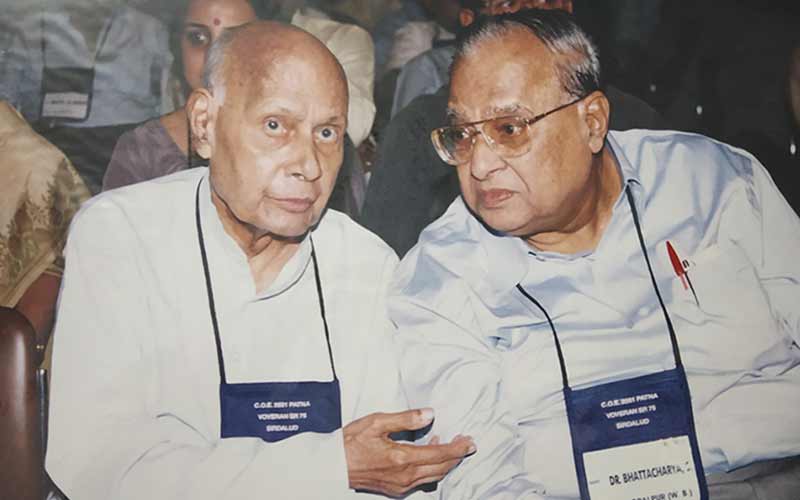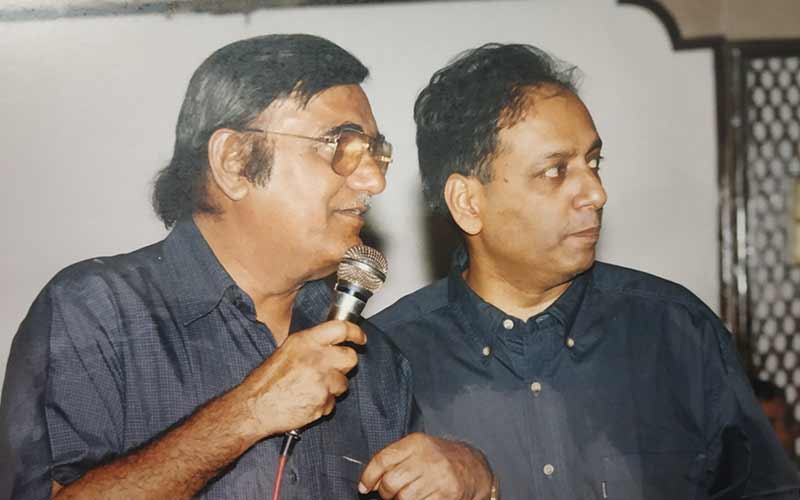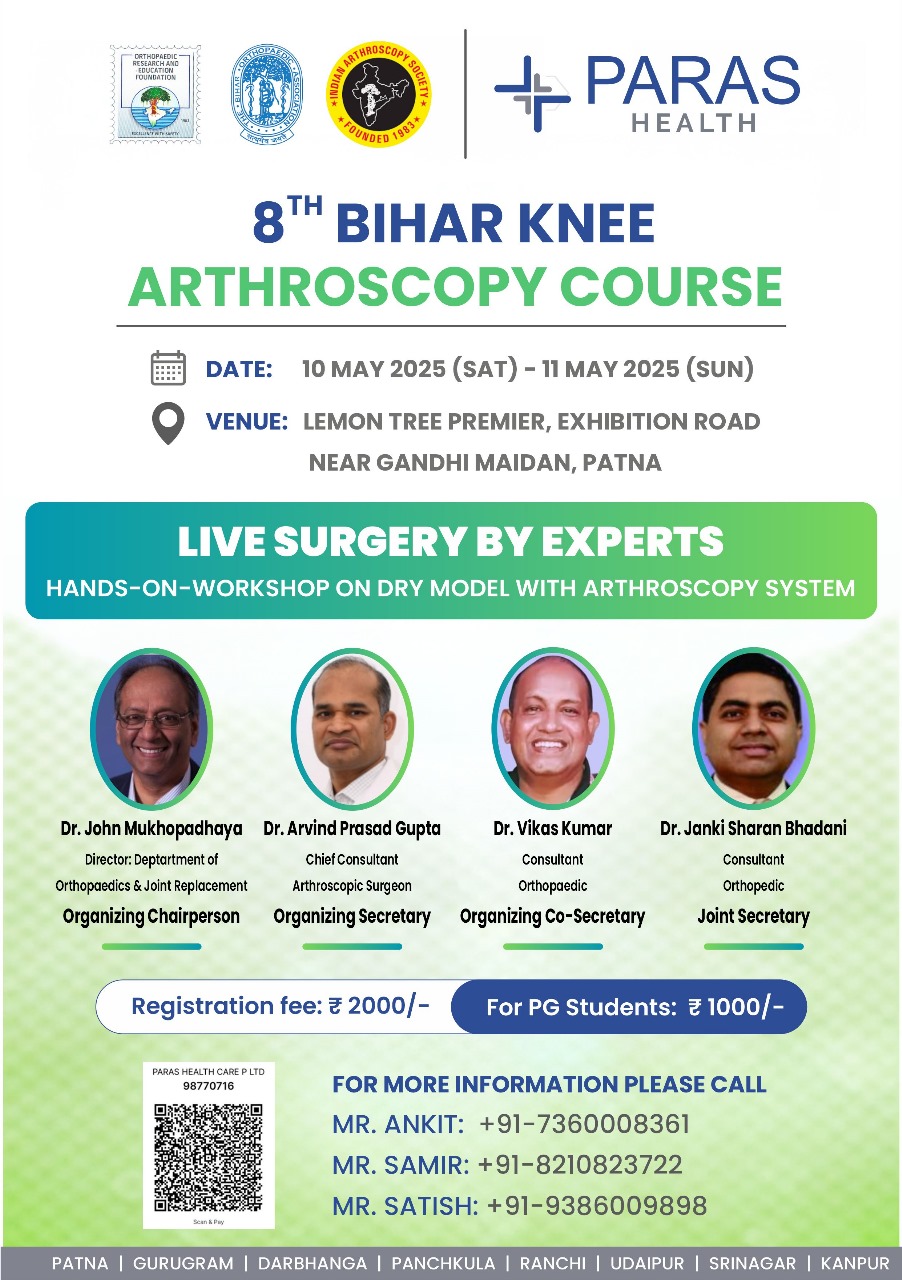Continuing education is universally accepted as mandatory for all professions. For Orthopaedic surgeons, where knowledge and specially technology is advanceing exponentially, the need has become obligatory. Consequently no Orthopaedics Surgeon can remain effective and efficient, and unless he constantly strives to update his knowledge and familiarize himself with a emerging technology, his excellence will become questionable.
Scientific discoveries in every field has been proceeding at an accelerated rate. It is very nature of science that it requires to take the body & automize it into organs & systems, then to discuss and cells, and then to biochemical, chemical & physical mechanisms, to provide explanations of phenomena at all these levels. The lower levels dealing with the ever smaller parts do not always explain the behaviour of the higher parts. Indeed random behaviour with increased complexity of response seems to be one of the essential features of higher organisms, the most complex of which is the human system. Consequently strict scientific criteria are not applicable to the practice of Orthopaedics which deal with individual human beings and therefore leave certain degree of unpredictability and uncertainty about the outcome by intervention from experimental models derived from study of its anatomical parts.
Late Dr. B. Mukhopadhaya had the good luck of spending long hours with Late Sir Harry Platt, who came and stayed with for 4 days. During this time, he had chance of finding out from Sir Harry how he had gone about in his effort to develop Orthopaedics in Great Britain. He was surprised to learn from him that Sir Harry did not have an appointment as an Orthopaedics Surgeon. His appointment throughout the active period of his life was as a lecturer in the department of surgery. However, having worked with Sir Robert John during the First World War, he had made up his mind to specialise in Orthopaedic Surgery. He therefore confided his professional activities in the field of Orthopaedics.
The word ‘Surgery’ has a some what narrow view in its conventional 19th century concept meaning ‘operative work’. In the practice of Orthopaedics, the ability to withhold the use of the ‘knife’ is an important aspect of the orientation to the practice of this speciality. He himself preffered to be called “Orthopaedic Physician’ because he was of the view that in the field of orthopaedic care, the qalities of a physician are to be closely combined with that osf a complete and reliable operative surgeon. Intervention in orthopaedics has always to be looled upon as a trauma to human tissues and as far as possible, efforts are to be made to limit the scope of intervention to the barest minimum.
After returning from abroad, he took keen interest in Orthopaedics Eduction and Research. He felt concerned bout the fact that the statutoryn the trust created by These Presents to the intent nd effect that such other Trust, instituion or charity shall be deemed to be a part and parcel pf the Trust operated by These Presents, provided that no conditions are accepted which involve a change in the name of this Trust or are inconsistent with or repugnant to the objects of the Trust.
In witness whereof, the Founder and Settler of the Trust has signed this deed, this the 30th day of April of the year 1988.

